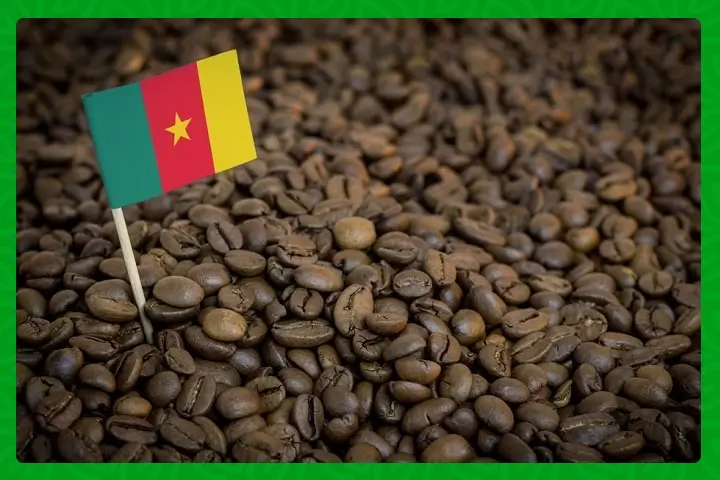
Cameroon, a relatively modest contender in the global coffee landscape, is making waves as its coffee gains popularity, particularly in the Maghreb and Eurozone regions. While holding the 54th position in worldwide sales volume might seem humble, with a market share peaking at 0.1% between 2018 and 2022, the allure of Cameroonian coffee is captivating the palates of discerning consumers, notably in Algeria, France, Belgium, and Portugal.
Maghreb and Eurozone Affection
According to a revealing report from the Competitiveness Committee, a specialized body of the Ministry of Economy, the lion’s share of Cameroon’s coffee exports gravitates towards four nations: Algeria, France, Belgium, and Portugal. Astonishingly, these countries accounted for a staggering 62.9% of Cameroon’s coffee exports in 2022.
Algeria, standing tall as the largest buyer, took home 18.6% of Cameroon’s coffee shipments in 2022, underscoring the robust demand for this African brew. France, the second-highest buyer, secured 15.5% of the coffee produced in Cameroon during the same period. Belgium and Portugal weren’t far behind, with 14.5% and 14.3% respectively, showcasing the widespread appeal of Cameroon’s coffee in the Eurozone.
Challenges and Triumphs: A Complex Blend
Despite its international allure, the Cameroonian coffee sector faces persistent challenges that have hindered its widespread success. Producer disinterest, stemming from low incomes, and the adversities posed by climate change are two major hurdles. Despite commendable efforts by the government and the Interprofessional Cocoa and Coffee Council (CICC) through various stimulus packages, coaxing the sector to flourish remains an uphill battle.
For decades, the industry has grappled with dwindling production levels. In stark contrast to its 130,000-ton coffee production in the 1990s, Cameroon saw a significant decline, recording a meager 12,157 tons during the 2020-2021 season – a 50.7% drop from the previous season. The challenges faced during this period even surpassed those of the 2012-2013 season, which was deemed the “worst in the last 50 years.”
Interestingly, while production faced setbacks, the processing sector in Cameroon exhibited remarkable dynamism. Unlike cocoa, which undergoes processing by foreign multinationals, coffee roasting in Cameroon stands as a national monopoly. These local roasters consistently earn international acclaim, securing awards for the exceptional quality of their products.
Brewing a Resilient Future
As Cameroon navigates the complexities of the coffee sector, there’s an undeniable optimism surrounding the potential for growth and resurgence. The international acclaim and demand from the Maghreb and Eurozone regions affirm the quality and desirability of Cameroon’s coffee.
With ongoing efforts to address challenges faced by producers, enhance income opportunities, and mitigate climate change impacts, the Cameroonian coffee industry is poised for a renaissance. As the world continues to discover and appreciate the unique flavors brewed in Cameroon, the global coffee community eagerly anticipates the rise of this African nation as a formidable player in the international coffee scene.
Stay updated with the latest farming tips and agriculture industry news from Africa by subscribing to our newsletter. Don’t miss out on valuable insights and updates. Follow us on Twitter, LinkedIn, and Facebook to join our farming community and stay connected with us.



















